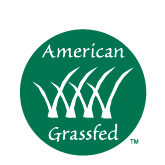July 4th Holiday Shipping Update
Please note that due to the upcoming holiday and the nature of our product, any orders placed between June 27th and July 9th will
Please note that due to the upcoming holiday and the nature of our product, any orders placed between June 27th and July 9th will
Why It’s Better to Go With a Recurring Meat Subscription Do you enjoy saving time and money? Do you want to feed your family well
Regenerative Agriculture Techniques Regenerative agricultural techniques focus on improving soil health. They may also prove key to combating climate change, an existential threat to our
Proper Ways to thaw Meat You’re eagerly anticipating your next meal of delicious 100% Grass Fed beef, raised using the principles of regenerative agriculture from
Permaculture and Rotational Grazing Permaculture farming methods are holistic and organic, working with nature instead of against it. These methods work hand in hand with
Meat Wrapping for Freezer Storage Stocking up on meat can have a really positive impact on your food budget. It’s always good to know you

